Stoiximan.gr Basket League Finals: L’ Etat c’est moi..
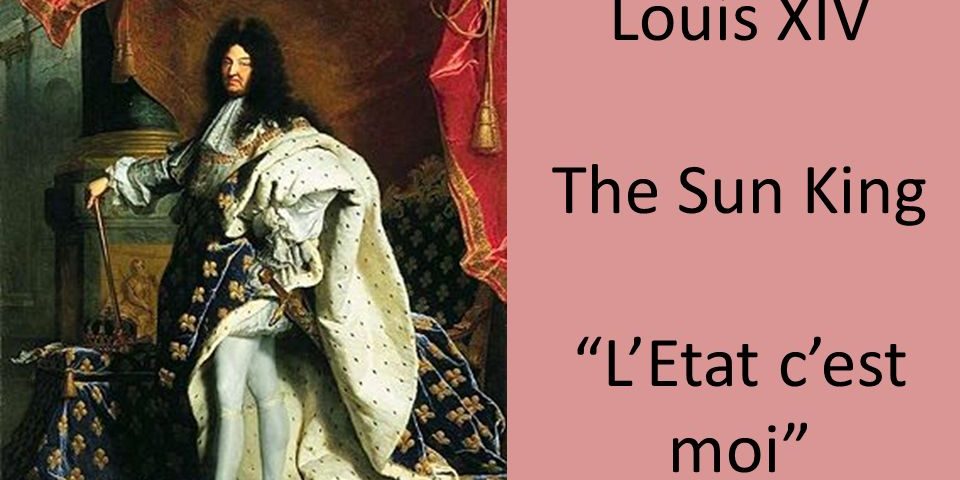
By Jim Katsionis on 28th May 2017
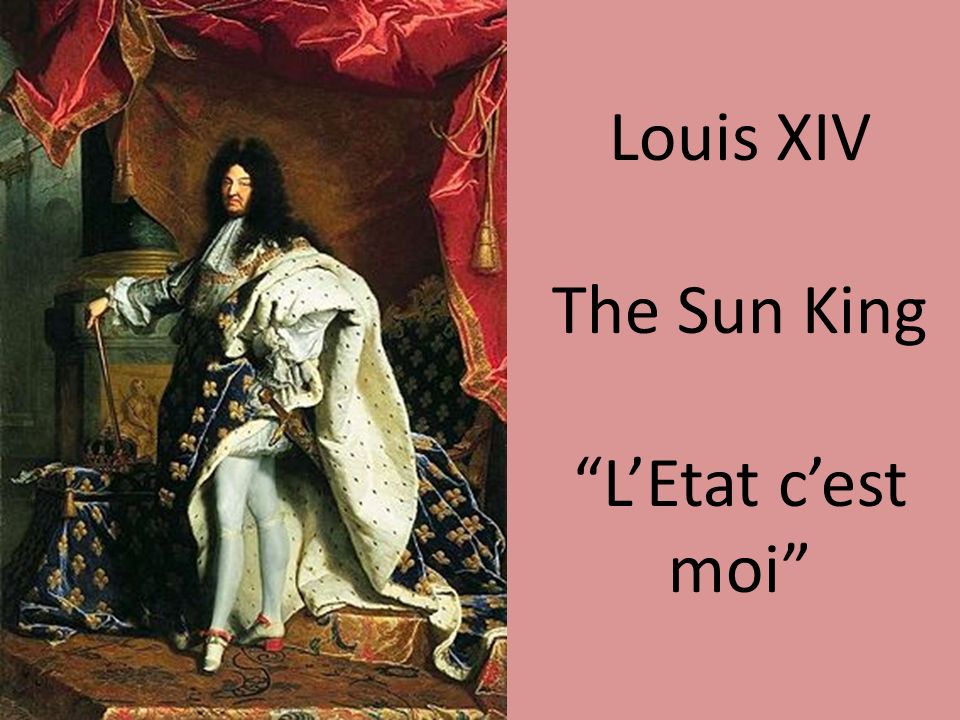
With the recent memories of last year’s memorable battle that made Europe bite their nails, Olympiacos and Panathinaikos meet again in the edge of the cliff with the reward being the crown of the king of Greek basketball. Hoopfellas draws first blood…
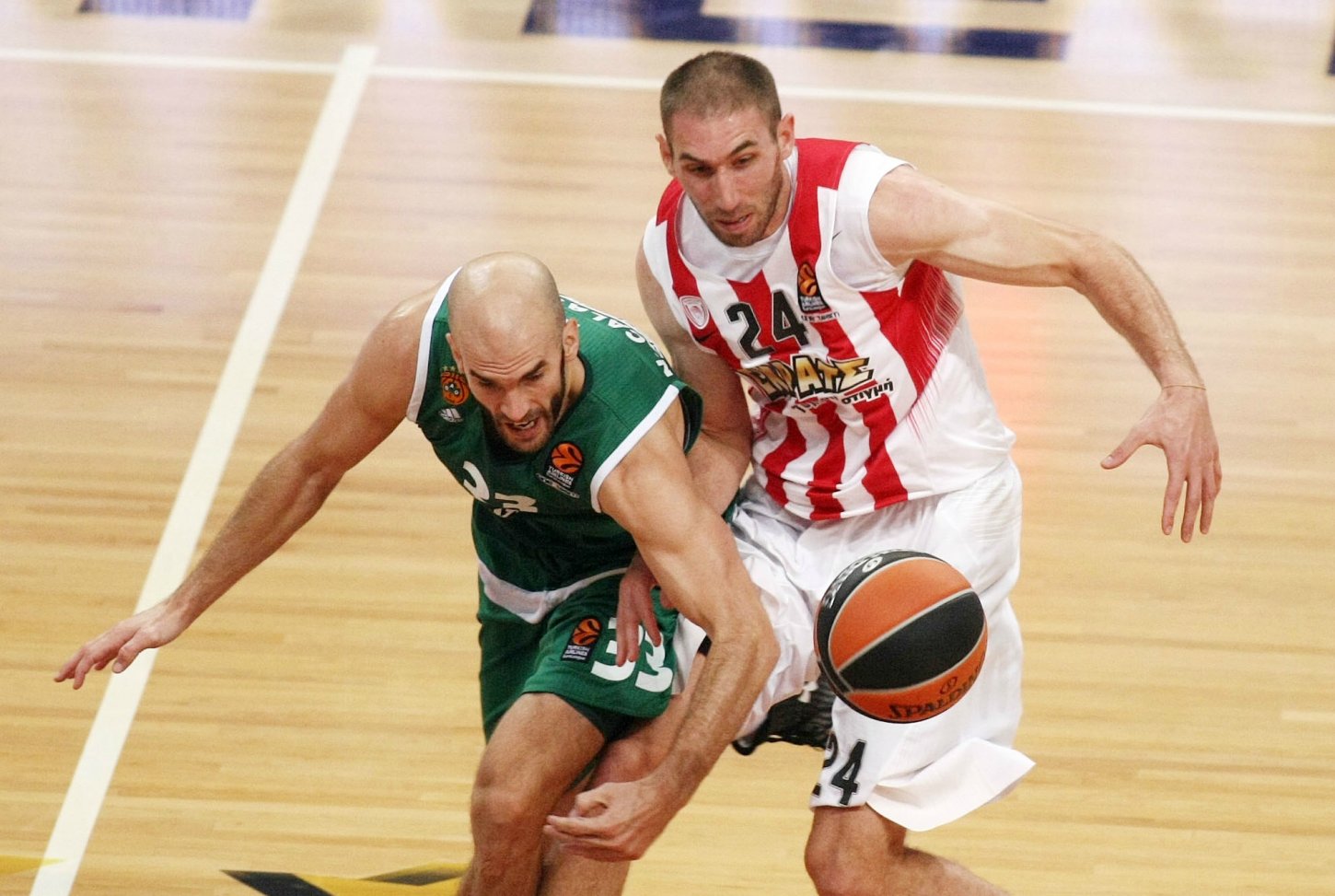
With the famous quote by king Louits is the XIV (L’ Etat c’ est moi) that reflects the psychological crown awarded to the final winner of this series and champion of the our country, we open up the file of this year’s finals of the Greek League. A series that made European crowds everywhere bite their nails last year with the way everything went down on the floor, and it’s only natural to be extra interesting this year as well. The only thing I can say is that our site’s readers from countries from northern Europe (which do not have a very developed “basketball culture”) have repeatedly asked me to help them get a ticket for at least one final, and they will travel to Greece for that game alone (they will be there for game 1 at Faliro). Everyone should understand the significance of these games for European basketball in total, being in a country that hosts the top series, the jewel of the Greek championship.
Enter the Greek Finals: The emotional background
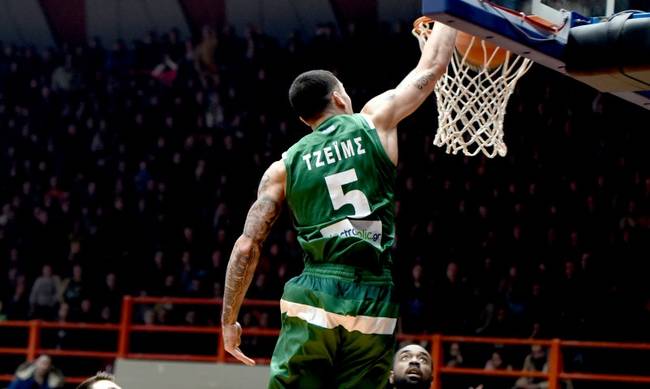
Different routes for the two teams as the Euroleague Playoffs had opposite effects on their psyche. Olympiacos rallied when faced with a difficult situation against Anadolu and were finally left standing and reached the championship game, whereas Panathinaikos couldn’t cope against the computerised basketball of Fenerbahce and everything that followed after game 3 severely hurt the team internally, especially its morale. I have to say that even after game 2 and Fener leading 0-2 with two road wins, I was talking late at night with friends and assessed (with the data we had at that point in a theoretical level) that betting in favour of Panathinaikos for the finals of Stoiximan.gr Basket League would be worthwhile. I thought that it counted, as I saw that the team matched well with Olympiacos, it has a good coach and they would have extra motive after failing to make the EL F4. Things are different now… Panathinaikos player poorly in the semifinal series against AEK and only game 4 gave them reasons to smile and be optimistic for the finals.
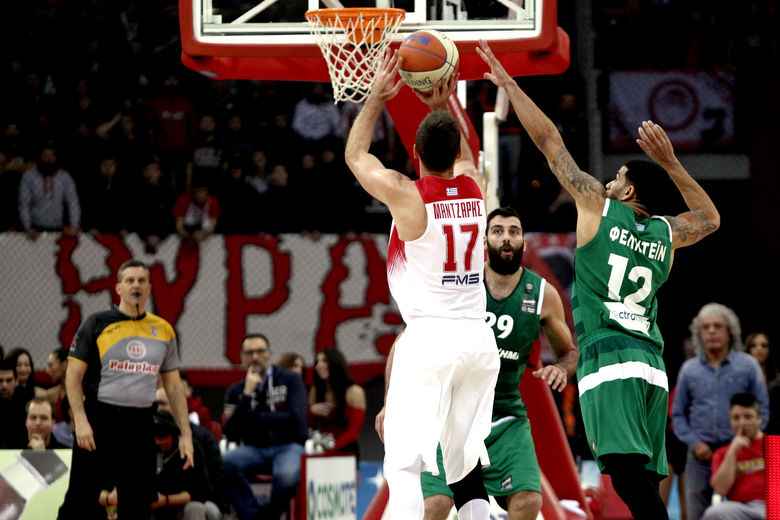
Olympiacos look far healthier than their opponent and these kinds of teams are harder to beat, when they have an advantage in the game or in the series, in general. The most complex part for the Reds regarding their psychological preparation for the finals is the process of turning the switch and readjusting their goals after the emotional tension a F4 appearance brings. Believe me, it’s not easy to empty out and go back to a new mental state of a new, very competitive series within a short time. This is where the Greens will rely today to take by surprise their opponent, who are in a better state today…
If you hit a king, you must kill him…
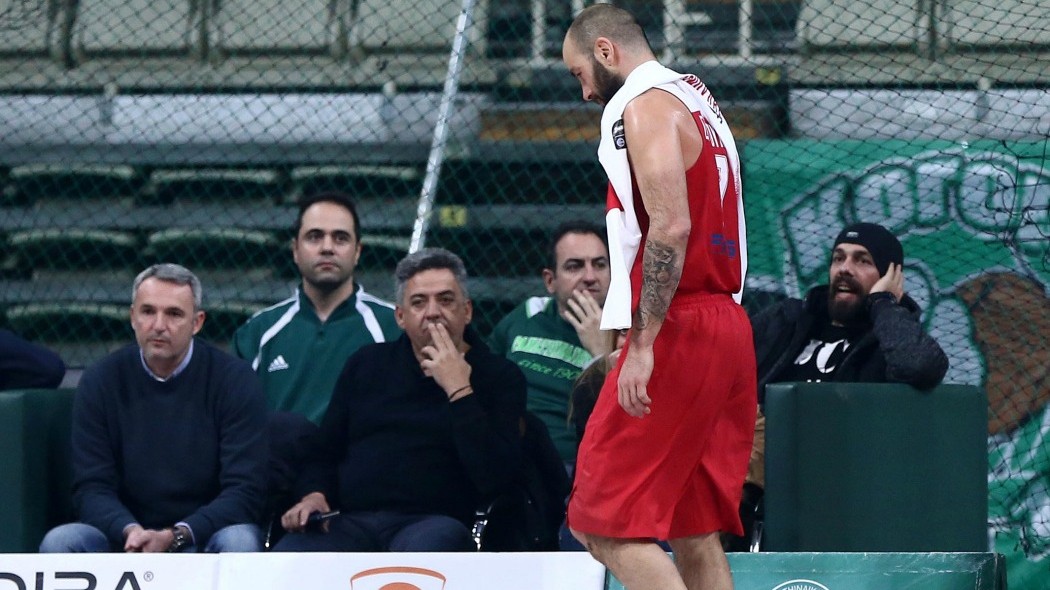
The green tactics of “ICE” against the Pick & Roll offence of Olympiacos, which aims at stopping Spanoulis was successful for Xavi Pascual and the chance of using it again in the finals is of course good. This is basically a tactic on which more Euroleague coaches should invest when facing the “Spanoulis challenge”, as proper reading and decoding of the Reds roster automatically leads you to this path.
With this strategy Panathinaikos chooses to keep Spanoulis on the side (deny the middle lane) as the defensive stance of the Greens guard (his back to the lane) “pushes” him away from the screener and seeks to stop this cooperation. This tactic works good for Olympiacos’ opponents, as their main screeners don’t have midrange or outside execution. We talked about that earlier in the season:
“Calathes kept Spanoulis on the side, methodically pushing him away from the screens (in essence they were fully disabled) and the Greens big man would lower as a cover to vertical dribble of the captain of the home team on the side, which only left an inefficient midrange shot to Sfairopoulos’ big man, which doesn’t exists in the repertoire of the attackers.
At the same time, this cooperation prevents rotations or any other third player being involved, which helped in some of the Greens lineups that had a bit heavier feet”
I think Calathes is possibly the best defensive guard in Europe in these kinds of defences. He is very concentrated, his responses are quick as a real ball hawk on the ball, with the right amount of strength and energy and does not allow his opponent to beat him, either by going over him, or by wearing him down. We saw it (in this type of defense) against Llull, when Madrid was using Ayon-Hunter for the ball screens.
In this year’s Euroleague F4 Olympiacos used the same defensive tactics (ICE) on De Colo (with Hines as the screener) and quite successfully I might add.
On the other hand, Spanoulis reads defences as very few people in the past few years in European basketball. He adjusts, he pinpoints the weak spot and uses it cynically. He won’t bite and go vertically on Singleton or Gist and he will try to work with the forward of the strong or the weak side, depending on the action coach Sfairopoulos will activate in his offence to help him, dribbling deep at first, the ball to the screener and him passing it to the weak side, using a vertical screen to bring the ball to the lane (a strange kind of curling). This is a situation worked to perfection by the Clippers with Chris Paul, one of the best PnR players basketball saw in the past 20 years, when their opponents used ICE to stop him. To better understand the action, I created the following GIF…

Olympiacos when Bourousis is on the floor
They will no doubt be aggressive and try to capitalise on their superiority in terms of speed and reactions when attacking. Once again Pascual will throw the ball to Calathes’ court (and the guard defending on the dominant ballhandler of the Reds offense, whose name is Spanoulis) choosing to “disengage” Bouroussis with Step Back-Fight Through, which keeps the Greek Center and his low efficiency agility in the paint, away from his exposure in the perimeter.
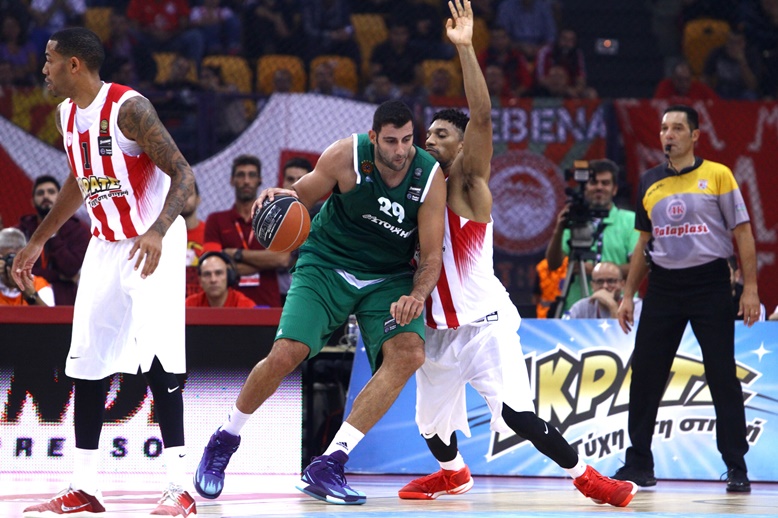
In the past, the Reds tendency to immediately execute after dribble was obvious as they wanted to punish the space allowed by the Greek team. These shots will be an important factor in forming the context (in terms of spaces and formations) on the floor. Spanoulis and the in-form Mantzaris will persistently look for the 45o angle shots. It will also be interesting to see if and how the Box and Shuffle offences we saw from Olympiacos in Istanbul are interpreted against Panathinaikos’ defense. The Reds will probably try to post up against Charalampopoulos with the strong bodies they have at the “3” position or put the ball (deep catch) in the heart of the key (Young, Milutinov, locking their opponent on their backs, they tried it this year against Bouroussis and I believe they will do it again). I think Milutinov is able to do some damage here. In general, Olympiacos will try to take advantage of Bouroussis’ 15 minutes on the floor and keep away from wearing down on the defensive end aiming at finishing this time with a plus sign.
On the other side, Panathinaikos will try to take advantage of the veteran Center’s presence in the low post and especially his ability to wear down his opponents. We have pointed out this year that the ability of Bouroussis and Singleton (as well as Pappas in the backcourt, that’s why he is such an important factor in the home games), i.e. the two players that covered the “5” position in a big part of this season, to win fouls and go to the free throw line. It will be very important for Xavi Pascual’s team the manner in which Bouroussis will handle himself in the low post. If he shows a tendency to turn the ball over (by passing the ball), he may hurt his team and allow Olympiacos the chance to run in the open court. On the contrary, with the big man as a point of reference and a source of danger for their opponent down low, Panathinaikos hope to be able to control the tempo.
Printezis-Calathes & Spread Offense
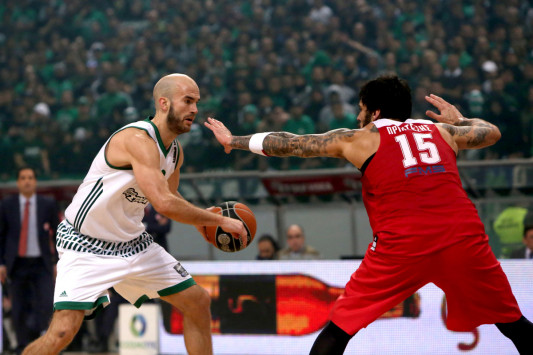
These are the Greek League finals, so it’s easy to see that none of the two coaches wants to see his team trapped in a low shot percentages against one of the top European (both teams had top defences in this year’s Euroleague) closed defense. It’s a fact that spaces will be decisive and both coaches will adjust their defence aiming at directing the ball in their opponent’s offense. Looking at the other side of the moon, each team will try to create the best possible context (in terms of spaces) in their offense looking to take advantage of their strong cards (for these teams it’s one on one offense). In particular…
Nick Calathes comes from a great series against AEK, where he had in 17.5 points (21/30 two pointers), 4.2 rebounds and 6.0 assists in 4 games, he was very productive and he stepped up when needed. Of course he will be up against a different level of defence. With the long and athletic Papanikolaou at the top and a great back line defence (both above the rim and on the ball) Olympiacos will not allow many chances to score. However, it will be important to see how the international guard will feel on the offensive end, as he will have many chances to shots behind the arc; depending on whether he makes the shots or not, the team’s morale is affected in each game separately. Pascual will try to create for him (through back/blind screens) chances in the middle lane, looking for him to go towards the basket.
Giorgos Printezis is traditionally the biggest threat for the Greens defence. Pascual seems to lean towards indicidual defence and selectively sending helps against him in the low post, aiming at stopping his tremendous footwork and the explosiveness of the Olympiacos super-star. For Panathinaikos the choice of double teaming him should be done after carefully studying it, as the F4 images showed that this is not the best time to “gamble” against Olympiacos’ spot shooters (who had ups and downs throughout the season. Mantzaris-Papanikolaou seems to be on from, Papapetrou has the composure to make big shots and punish his opponents, and in Istanbul we also saw Agravanis answering the call (even though I think that from certain positions the green defense will allow him free looks) and will use his F4 and last year’s finals experience to make his mark on this series.
Both coaches will try to clear out the key in their attack. There is a good possibility to see their offences running ball screens with the “4” as the screener, so that their guards may finish against smaller length. We have seen this before with Printezis and Gabriel. The team that will be able to score easier from the paint will automatically have the upper hand in this series.
Birch vs Gist: The battle above the rim
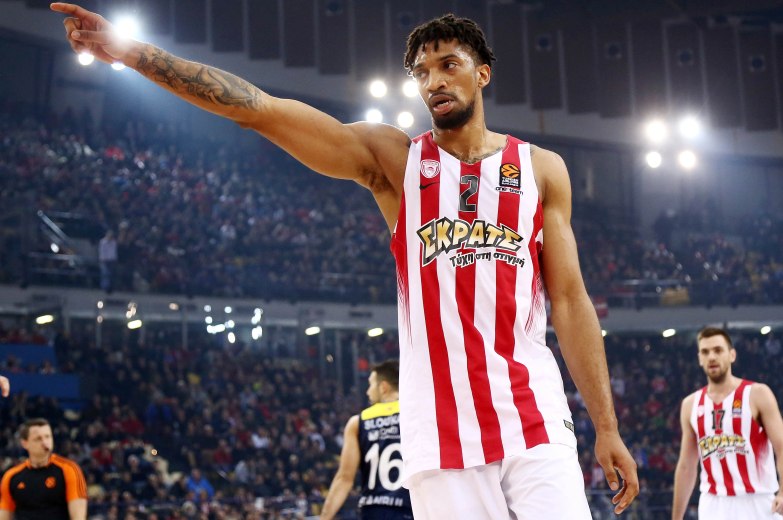
They are the cornerstones of their teams’ defensive tactics, and their performance (both as rim protectors and as finishers down low) will play a very important role for the outcome of the match. Their teammates are waiting for the last players of the centre of the key to cover them. The Canadian player seems to have the upper hand at this moment. He is in a better condition, he is hungrier and he has more energy. Both of them will need to make great defensive plays, especially in the last stretches of the games and their agility will be put to the test against the backcourt players of their opponent, after switching. For Panathinaikos, it will be important to keep Birch (and Olympiacos in general) away from offensive rebounds, which may give coach Sfairopoulos’ team an edge. Gist has his last chance to prove that he belongs to next season’s roster, as this season (he lost a part of it due to an injury) leads to the conclusion that the Greens have already seen the best of him and that his brightest days are behind him…
The American factor…
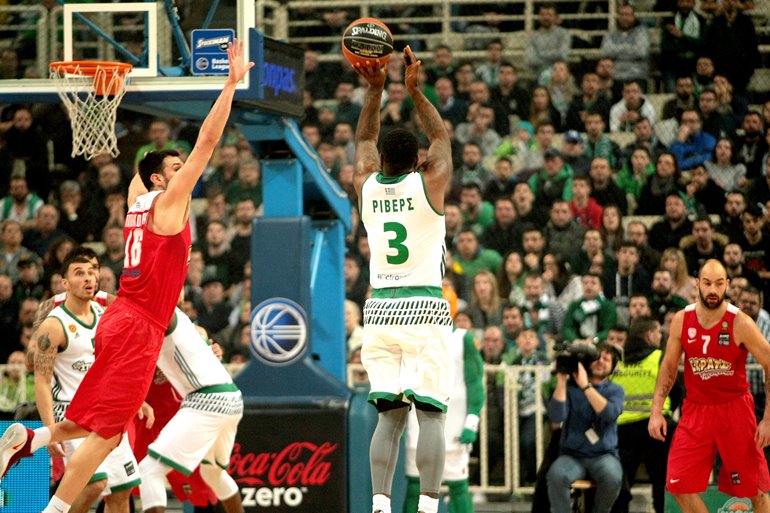
It’s not a secret that the trio of James-Rivers-Singleton consistently carried Panathinaikos’ offense all year long and their presence give Panathinaikos a few great advantages over the “eternal adversary”. The duo of James-Rivers seemed to have a feeling of supremacy in terms of personal battles when it was up against the Reds and in particular against the duo of Green-Lojeski, but the tides have turned. James and Singleton were under the spotlight after everything that came after the EL playoffs, and they know that they will be the centre of attention in the finals. There is much doubt, as it seems that something has changed in the connective ties with the team and truth is that this may show in this finals series. All three are players with personality and are not easily matched, even by a defense as efficient as that of Olympiacos. James and Rivers have a rare ability (in modern European basketball at this level) to consistently score on very good defence, and Singleton is a miss match nightmare, as he can use his size, accuracy and outside shooting, as well as his ability to put the ball on the floor to score from anywhere in the court. It is unknown in what condition they will be, that’s why the estimated performance of the Greens is covered by a veil of mystery. This trio is the backbone of the Greens game and they are vital in both ends of the court. Without them in a good mood, the Greens will find it very difficult to match Olympiacos.
On the contrary, the supportive nature of Olympiacos’ American players automatically creates certain demands. Lojeski, who is an important asset in Giannis Sfairopoulos’ offense, is, at least for now, sidelined, and Waters-Young will be asked to be efficient and bring hustling to the game from deep in the bench. Of course Green will be important. He may be asked to spend some time guarding James, whereas his main mission will be to decompress (with his presence in the backcourt) Spanoulis-Printezis, and be efficient with his shooting. Green does not have playmaking abilities (I remember reading last summer that it was an asset he will bring to Olympiacos’ game, that’s why I keep telling you that you should be careful what you read…). I think with him performing close to his numbers in the series 9-10 points (40% three pointers) the champions will start building a good momentum to win. The key will be to remain aggressive.
On your marks…
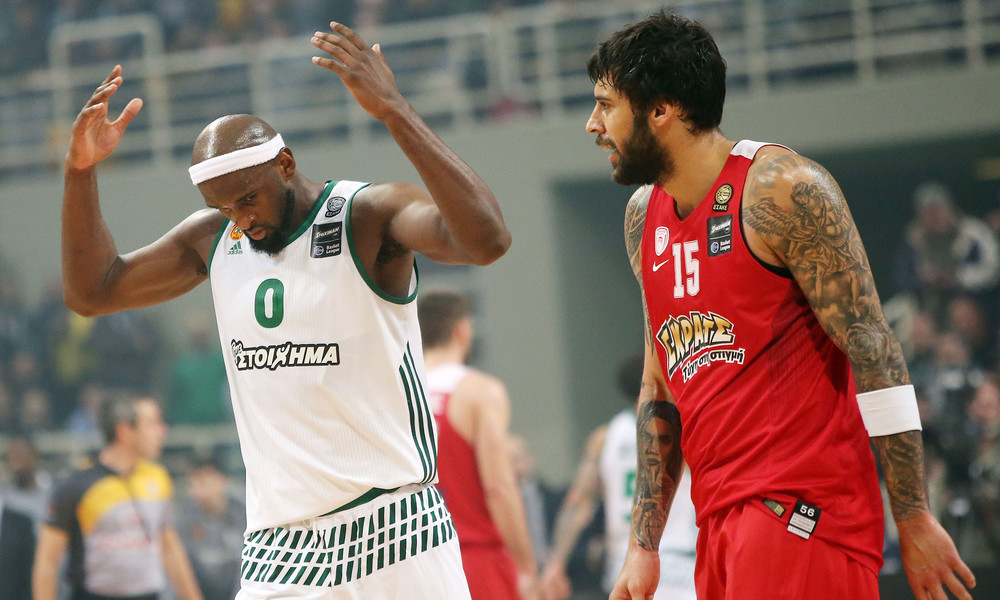
Olympiacos enters this series as the favourite, even though in the second half of the season, the two teams looked like they are close in terms of their game. They have spent more time together as a team in such games and marginal situations, which means quicker activation of defensive mechanisms in cases they are on the ropes. Panathinaikos has the quality, especially in terms of players, to change things around in the series, and they also have a very knowledgeable coach. However, under these circumstances, I doubt whether they have the communication ties coach Pascual usually has with his players, and the way he can inspire them when thing aren’t going well. This is where coach Sfairopoulos’ advantage lies, and this is where he worked really well both in last season’s series and this season’s Euroleague. Game 1will be Panathinaikos’ best chance. This is where both teams will try to establish their place and their psychological status entering the series, with the chance for an “upset” (although the actual meaning of this word does not really cover this series) being better. Regardless of what has happened or what everyone anticipates, I expect to see the word “desire” written all over the court, painted on the face of every person of the two teams. Desire and lots of passion. The gods of Greek basketball will take care of everything else. Enjoy…
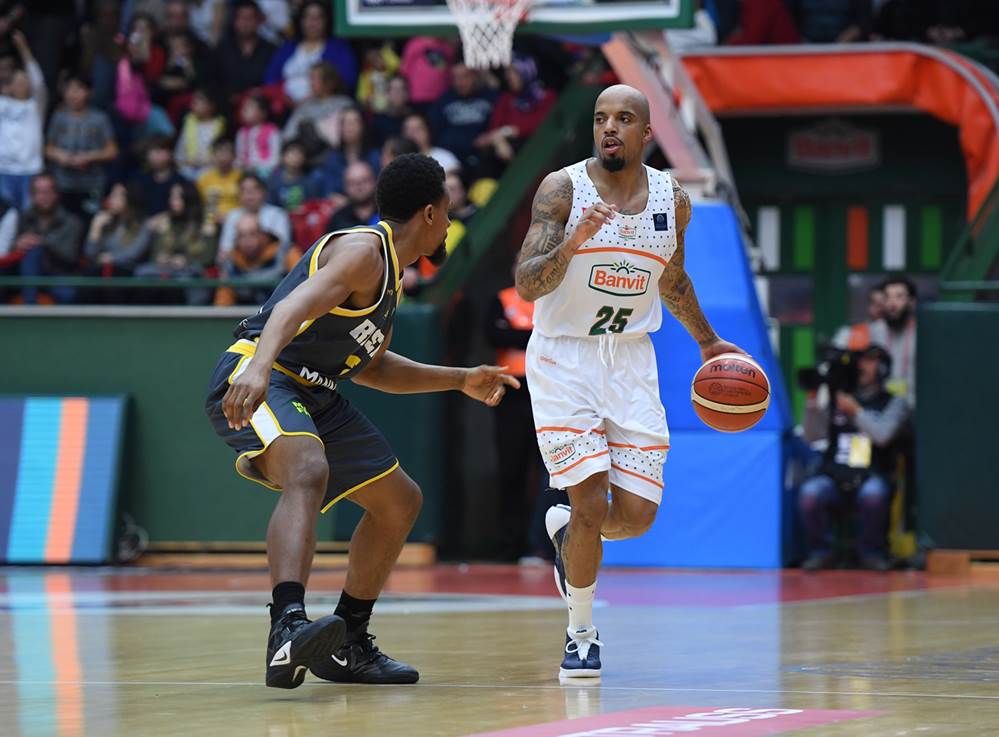
P.S.: In Milan they are living the groundhog day once more season with the team being confused and playing below their capabilities in the Italian playoffs. Maurizio Buscaglia has been praised about his work in Trento and he has managed to have a very good defensive team and cover the severe injury problems that have left him fighting with a short rotation of 8 players. Coach Repesa’s position is insecure and there are complaints about the contract of Kalnietis, who renewed it recently. The management is trying to close the deal with Jordan Theodore of Banvit, who is the main transferring target of the team this summer.
P.S1: A Hawks scouter was, together with Dennis Schroder, in the German league finals and checked out some players. Melli’s ability to pass the ball is certainly an asset properly interpreted in the Spurs-based offence of Budenholzer, although my Bavarian associate insists on connecting the scouter’s presence with Daniel Theiss’ persistence in playing in the USA, even in the next season, if possible.
P.S. 2: A team, especially at this level, goes through a difficult period when they press the rebuilding button. In this year’s Barcelona, the process was even more complex, as we are talking about a change in their DNA. They knew beforehand that the coach represents another coaching school, a different philosophy. Or didn’t they…?
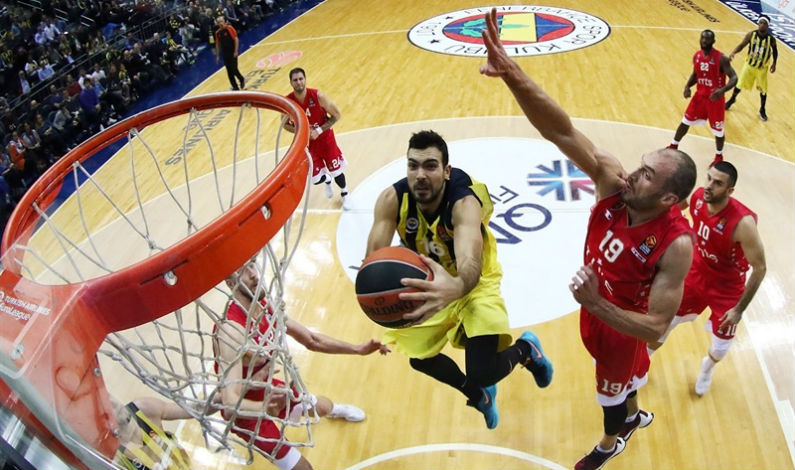
P.S.3: In my opinion, the true essence is not in what Sloukas said, but in why he said it at this particular point. This is where we should focus.
Translated by: George-Orestis Zoumpos
Jim Katsionis


